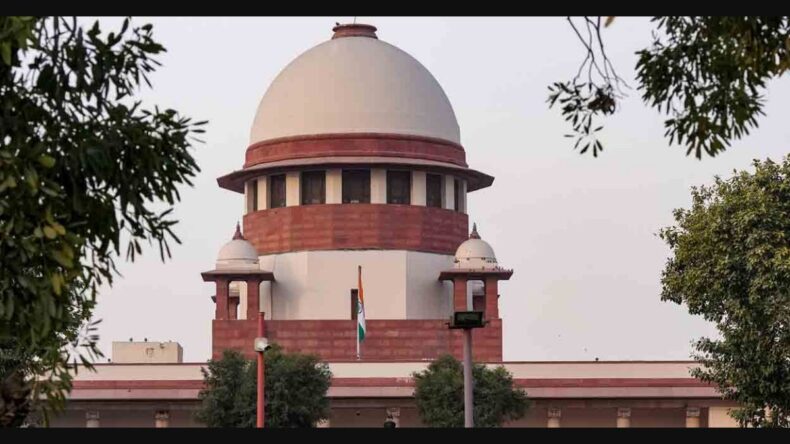In a significant verdict, the Supreme Court of India has reaffirmed the importance of media self-regulation while reinforcing the role of the News Broadcasting Standards and Disputes Authority (NBDSA) in imposing penalties on television channels. The apex court’s ruling comes as a response to a petition questioning the High Court’s critical observations against the self-regulatory mechanism in the media industry. The High Court’s judgement came in a January 2021 case questioning the media trial of the Sushant Singh Rajput death case. This judgment holds far-reaching implications for media ethics, accountability, and press freedom.

Supreme Court Upholds Media Self-Regulation Mechanism: NBDSA’s Role Reinforced in Imposing Proportionate Penalties on TV Channels
The Supreme Court’s verdict underscores the significance of media self-regulation as a crucial aspect of upholding journalistic ethics and maintaining accountability in the ever-evolving landscape of media broadcasting. The court acknowledged that self-regulation allows the industry to address concerns swiftly and maintain public trust while minimizing external interference that could impede the freedom of the press. The judgment maintains a delicate balance between press freedom and responsible journalism.
Role of NBDSA: Strengthening Oversight and Penalties
The News Broadcasting Standards and Disputes Authority (NBDSA) has been entrusted with ensuring that the media adheres to ethical standards and broadcast guidelines. The court upheld NBDSA’s role as an impartial body capable of addressing disputes and enforcing penalties on erring TV channels. This reaffirmation is a significant step towards bolstering the credibility of self-regulation mechanisms in the media sector. The authority’s ability to levy penalties acts as a deterrent against sensationalism, misinformation, and other ethical breaches.
Proportionate Penalties: Balancing Fines with Profits
A noteworthy facet of the Supreme Court’s ruling is its emphasis on proportionality when imposing penalties on TV channels. The court stressed that penalties should be commensurate with the profits garnered by the channels, ensuring that the financial repercussion is not disproportionate to the violation. This aspect introduces a balanced approach, deterring media organizations from unethical practices without burdening them disproportionately. This nuanced perspective aligns with the principles of fairness and avoids undue hardship on media outlets.
Balancing Freedom of Expression and Responsible Reporting
The Supreme Court’s decision demonstrates a nuanced approach to striking a balance between the constitutional right to freedom of expression and the responsibility of the media to provide accurate and unbiased information. While emphasizing the necessity of robust reporting, the court highlighted that such freedom must not infringe upon individuals’ rights or mislead the public. This ruling echoes the court’s commitment to fostering a media environment that is both free and responsible.
Implications for Media Houses
This verdict presents media houses with a clear message: responsible journalism and adherence to ethical standards are not negotiable. The judgment encourages media houses to embrace self-regulation as a proactive approach to maintaining their integrity and credibility. By upholding the NBDSA’s role in imposing proportionate penalties, the court reinforces that media organizations must be accountable for their actions, particularly when they deviate from established norms.
Way Forward
As media continues to evolve and adapt to new technologies and platforms, the Supreme Court’s decision provides a robust framework for ensuring that journalistic integrity remains intact. It is imperative that media organizations, while enjoying the privileges of the freedom of the press, also recognize their responsibilities towards the public. By adhering to self-regulation mechanisms, respecting the guidelines set forth by bodies like NBDSA, and understanding the importance of proportionate penalties, the media can play a pivotal role in disseminating accurate and unbiased information, thus contributing to a well-informed society.
Conclusion
The Supreme Court’s verdict on media self-regulation and the role of NBDSA in imposing proportionate penalties on TV channels serves as a significant milestone in the Indian media landscape. Upholding the principles of ethical journalism, maintaining a balance between freedom of expression and responsible reporting, and introducing proportionality in penalties, this judgment reinforces the importance of a vibrant and accountable media ecosystem. As media organizations move forward, they must internalize the court’s message of self-regulation and proportionate penalties and embrace their role as purveyors of truthful and unbiased information in public service.












